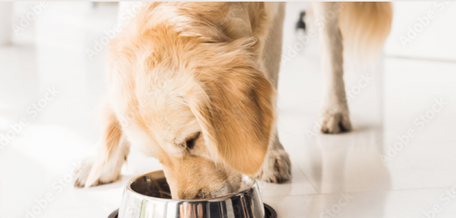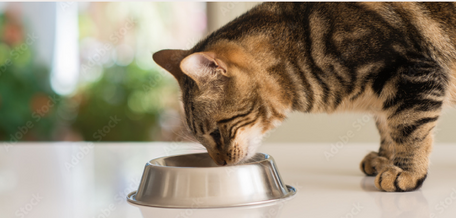


?
You got Questions
We are proud to source our raw ingredients from small traditional farms just like ours, most of which are in our surrounding community near Lancaster, PA. Our livestock and poultry spend their days on pasture, eating grass and bugs, allowed to engage in species appropriate behavior that benefits both the body and the mind. We are blessed to be situated in the heart of Pennsylvania agriculture and belong to a community that invests in animal health and traditional farming practices.
Our raw foods for dogs and cats make use of the entire animal, from the head to the feet, including all of the internal organs, the skin, the bones, the brain, all of the connective tissue, intestines, fur, and all the rest. This is the closest we can come to mimicking our pet’s wild, ancestral diet.
We recommend thawing our foods on a plate on the counter at room temperature. Do not use a microwave or other heating instrument as this may damage various nutrients.
Our farm store in Lancaster, PA is open from 8 am to 5:30 pm Monday - Friday and 9 am to 3 pm Saturdays.
Our foods can be kept thawed in the refrigerator for up to 5 days. Raw goat milk and bone broth are good for 5 - 7 days.
Yes! All of our foods can be thawed and refrozen. Please keep in mind that the food will experience about a 1% nutrient loss each time it is refrozen.
Our foods are complete diets, utilizing whole animals and seasonal produce to most accurately replicate our pets’ ancestral diets. While there is no need to add anything, we do recommend adding our raw goat milks and bone broths for the nutritional boosts they provide.
We recommend transitioning over the course of 1-2 weeks. Increase the new food in increments of 1/4th your pet’s daily calories. For dogs and cats with particularly sensitive digestive systems, we recommend adding a small amount of our beef bone broth, which will coat the entire digestive tract with rich collagen, strengthening it and fortifying it. Please note that each pet is different and may need different steps! If this method doesn’t work, please reach out and we can provide more personalized advice.
There may be! This will be most noticeable for the first couple weeks, while your pet’s gut microbiome is adjusting to the new foods. Many pet parents find that their pets poop less frequently and in smaller quantities on a raw food diet due to its bioavailable and nutrient dense nature.
Dogs and cats evolved eating both fresh kills and rotting carcasses for thousands of years. They have short, extremely acidic digestive tracts, so even if our foods did contain enough salmonella to make them sick, it wouldn’t be able to “stick” long enough to affect them. In terms of humans, just handle our foods like you would any other raw animal product - wash your hands before and after handling. The idea that a pet can “pass pathogens” to a human by licking them after eating is completely unproven.
This is a myth! While your dog may experience an increase in energy, due to their nutrient dense, species appropriate diet, it is more likely that they would become less aggressive than more. This has to do with the gut-brain bacteria connection - a healthy gut microbiome influences the brain just like an unhealthy one does via various hormones. A healthy body is a happy one.
3% of your pet’s adult body weight is a good starting point! Remember that all animals are individuals and may require you to tweak this slightly for their own metabolism.
We ship all of our foods nationwide! Orders $189 or more qualify for free shipping if you live in the United States!
If orders are returned within 30 days of purchase (shipping paid by the customer), a full refund of the purchase order will be given (not including shipping costs). We offer no refunds on custom orders. Terms and Conditions
We recommend patience! It is common for dogs to be unsure of new foods; we understand this can be stressful. However, if you are consistent and intentional about introducing new foods, they will learn to love them! Check out *this article** for more information.
Introducing new foods to cats is often challenging! This has to do with their innate biology - cats learn what to eat when they are young, so if they only ate one type of food as a kitten, it is likely that preference will remain strong their whole lives. We recommend an extremely gradual transition! Check out this article for more details.




















